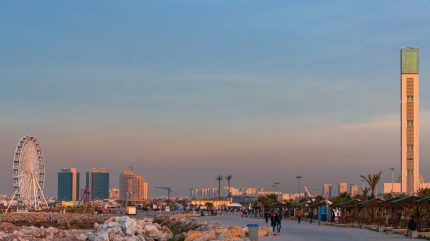
Algeria is the tenth largest country in the world by size and the largest in Africa, with a land area of 2.4 million square kilometres and a population of just under 30 million. The country gained independence from France after a conflict in the late 1950s and early 1960s, which claimed the lives of thousands, but the country was freed from colonial rule in 1962.
However, life has not been all plain sailing for the country since then. After the war, the National Liberation Front (NLF) ruled Algeria unopposed until other parties were legalised in 1989. However, the 1991 elections in the country were then shut down by the military over fears that an ‘extremist’ government could take power. The proceeding unrest saw mass protests and civil war, resulting in approximately 100,000 deaths, with the NLF retaining power. At the turn of the century, President Abdelaziz Bouteflika oversaw a period of relative stability, using oil and gas revenues to calm the local economy. However, criticisms over corruption and rising unemployment resulted in Algeria’s Arab Spring in 2011, and yet further unrest. Eventually, protests surrounding Bouteflika’s attempts to seek a fifth term as president culminated in his resignation in 2019.
Political instability has affected Algeria’s FDI
Bouteflika was blamed by many Algerians for the unrest the country had experienced, along with high levels of corruption. In 2019, one of his associates, Abdelmadjid Tebboune, replaced him as president.
Tebboune promised reforms to the political system upon being elected, but in spite of a referendum over the reform of electoral laws, little has changed in the country. Given that political stability is a key driver of foreign direct investment (FDI), how has this backdrop affected how investors view Algeria?
In recent years, Algeria has suffered from a massive drop in FDI projects after a peak of 28 in 2019, and has yet to fully recover, with only five projects coming into the country in a Covid-affected 2020 and 12 in 2022. While most countries suffered a drop in project numbers during the pandemic, most – both developed and developing – mounted a comeback in 2022 in particular. Algeria, however, still falls some way short of its pre-Covid heights.
Will new law help bring FDI to Algeria?
Algeria's struggle to attract FDI may in part explain Tebboune's decision to abolish a law requiring all new companies in the country to be at least 51% owned by local interests, meaning foreign investors would have to seek out local partners and investors. While the removal of this law will make it easier for foreign investors to make inroads into Algeria, this ‘51/49’ restriction remains for some of the country’s key sectors, including the dominant hydrocarbons industry, as well as mining, defence, pharmaceutical production and the import of goods for resale in Algeria. This makes a glut of investment coming into some of the country's most lucrative sectors less likely.
That said, renewable and alternative power accounted for 25% of the FDI projects in Algeria in 2022, thanks to the prevalence of hydrocarbon resources in the country while chemicals and coal, oil and gas accounted for about one-sixth each. These numbers show that although there is still legislation in place to keep Algeria’s most prosperous industries in majority local hands, foreign investors are still finding ways to access them, something that may receive a further boost as many countries in the world look to alternative energy sources due to the sanctions imposed on Russia since the invasion of Ukraine.
A new law promoting contract flexibility around hydrocarbons is also seen as an attempt to attract more international investors to Algeria, and it has resulted in memoranda of understanding being signed by international oil companies such as Equinor and Cespa, as well as Algeria’s national hydrocarbon company Sonatrach.
Will a changing global landscape benefit Algeria?
The changing FDI landscape of the past two decades has seen the nationalities of the investors coming into Algeria change. Its historical relationship with France has drifted, replaced by interest from China and Turkey, with the former's ties going back to it supporting Algeria’s fight for independence in the 1960s.
China has been keen to affirm its relationship with Algeria through moves such as a $40m gift towards the Opera of Algiers in 2010 and a $28.8m donation for economic and technical cooperation in 2018. Turkey’s close relationship with Algeria was similarly highlighted by President Recep Tayyip Erdoğan’s visit to the country in 2018, the same year as a Turkish-Algerian business forum.
This pivot away from the West and towards the East could explain the downturn in FDI projects coming into Algeria, which have spluttered along since 2011 and the Arab Spring. Building new partnerships takes time, and Algeria will be no doubt hoping that its blooming relationship with China in particular will bear more fruit in the coming years. This need to discover more profitable sectors in the country could account for the range of other FDI projects in Algeria in 2022, which shows a country seemingly trying to diversify its FDI portfolio. These projects were in tourism, automotive, electronics, business and professional services, and medical devices, with each of those sectors attracting one FDI project in 2022.
At a continental level, Algeria still lags behind big players such as Egypt, which boasts the largest economy in North Africa. However, Algeria's efforts to diversify its FDI interests away from just hydrocarbons, and encouragement provided by the government towards foreign investors, signal that the largest African country by land area could be looking to establish itself as one of the continent's FDI giants too by the end of the decade.



